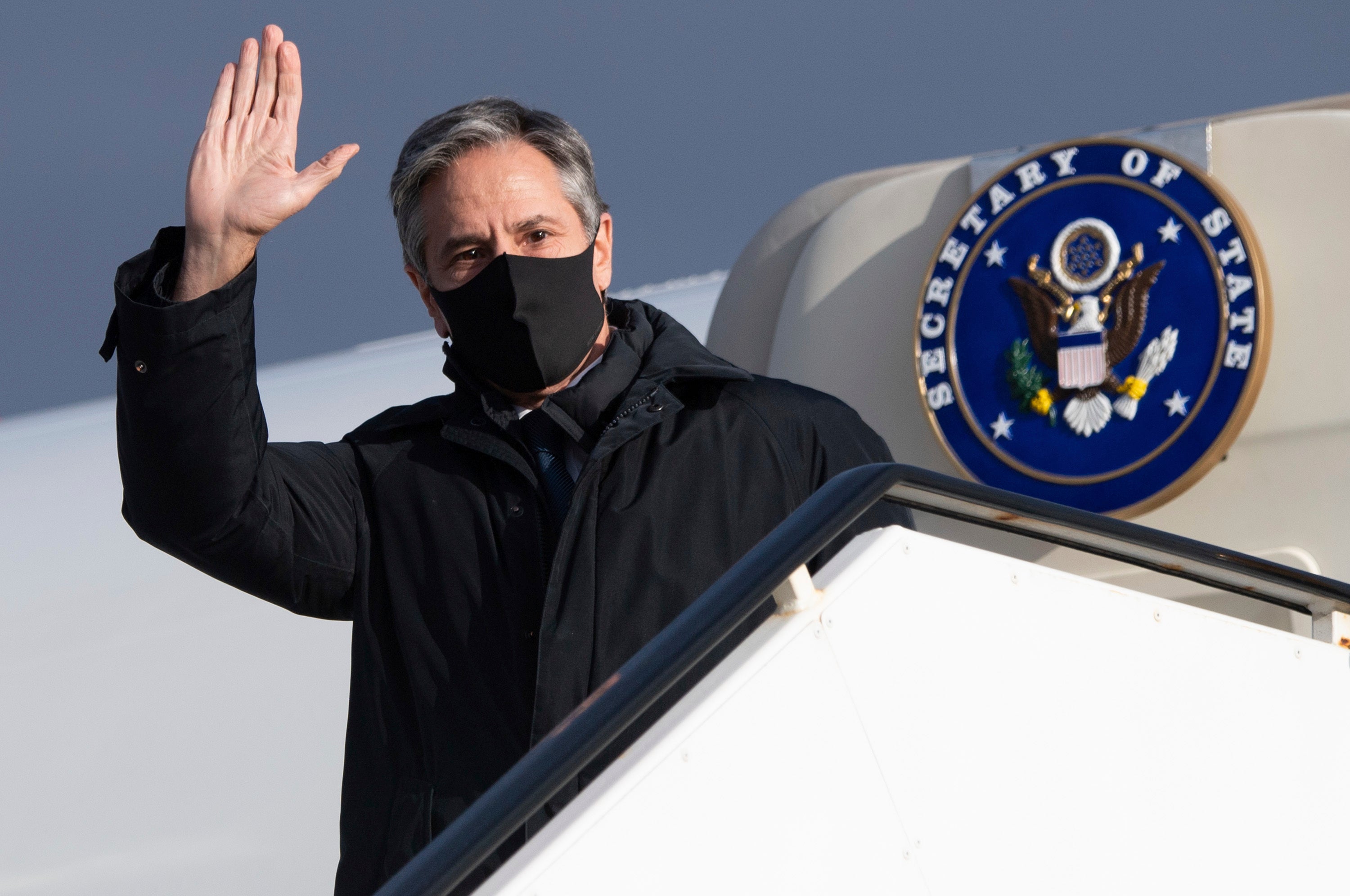Blinken brings Biden's anti-Trump climate policy to Iceland
U.S. Secretary of State Antony Blinken is touting the Biden administration's abrupt shift in its predecessor's climate policies as he visits Iceland for talks with senior officials from the world's Arctic nations

On a trip overshadowed by the crisis in the Middle East U.S. Secretary of State Antony Blinken on Tuesday touted the Biden administration’s abrupt shift in its predecessor’s climate policies as he visited Iceland for talks with senior officials from the world’s Arctic nations.
In Reykjavik for a meeting of foreign ministers of the eight members of the Arctic Council, Blinken heralded President Joe Biden’s return to the Paris climate accord and determination to combat climate change.
Yet the worsening violence between Israel and the Palestinians hung over the discussions. A small group of pro-Palestinian demonstrators holding banners and flags protested outside the conference center where Blinken met Icelandic Foreign Minister Gudlaugur Thor Thordarson.
“We are very focused on reinvigorating our closest alliances and partnerships, and also our engagement in multilateral institutions, and being here really represents both aspects of that effort,” Blinken told the foreign minister. He lauded Iceland for its strong support for human rights, climate change mitigation and the role it plays in NATO.
The Arctic is warming faster than the rest of the world and has been particularly hard hit by rising sea levels from melting sea ice and glaciers. Former U.S. President Donald Trump had alienated Arctic countries and others with his dismissal of the phenomenon and his withdrawal from the 2015 Paris agreement.
Trump’s former Secretary of State, Mike Pompeo, also stunned many in the environmental community at an Arctic Council meeting two years ago in Finland with a call for countries to embrace and harness climate change, particularly the opening of new sea lanes due to melting ice, for commercial gain.
Blinken will tour several Icelandic geo-thermal energy sites later Tuesday before holding a series of bilateral meetings with other Arctic Council foreign ministers on Wednesday. Among them will be Russian Foreign Minister Sergey Lavrov in what will be the highest-level face-to-face talks between the two countries since Biden took office.
Blinken will see Lavrov amid a sharp deterioration in ties between Washington and Moscow sparked by Russia's build-up of troops along the border with Ukraine, cyberattacks and allegations that Russia interfered in U.S. presidential elections in 2016 and 2020. The two nations are also at odds over influence in the Arctic, with Russia insisting its large Arctic landmass makes it the pre-eminent power in the region.
Moscow and Washington are also embroiled in a bitter dispute over the status of their respective embassies and consulates after tit-for-tat expulsions this year. Russia has given the U.S. until Aug. 1 to get rid of all non-American staff at its diplomatic missions, something the U.S. says will make it nearly impossible for its facilities to function.
Blinken and Lavrov's talks will also serve as a preview for an expected summit between Biden and Russian President Vladimir Putin next month.
Senior officials say Biden is interested in testing the proposition that the U.S. and Russia can work collaboratively on certain issues, like climate change, the Mideast, Iran and North Korea, despite bitter disagreements on others.
___
Follow all AP stories on climate change issues at https://apnews.com/hub/climate.
Bookmark popover
Removed from bookmarks